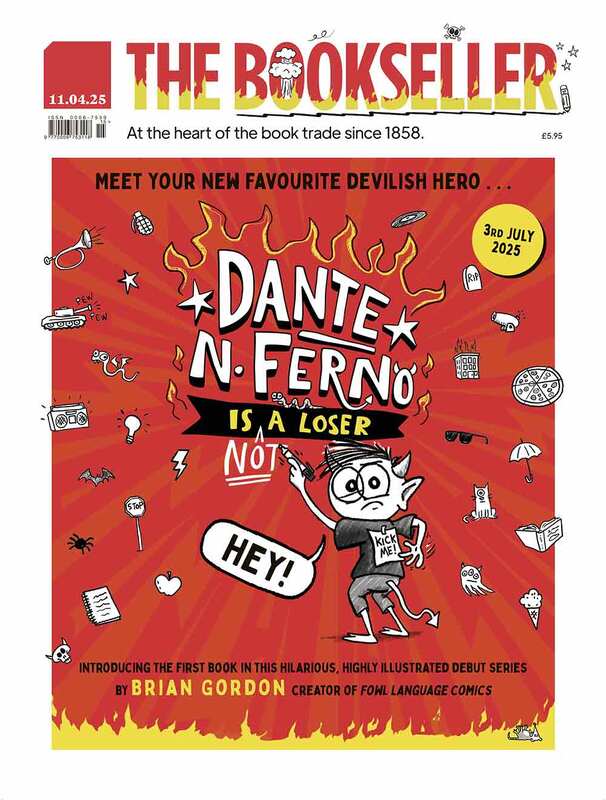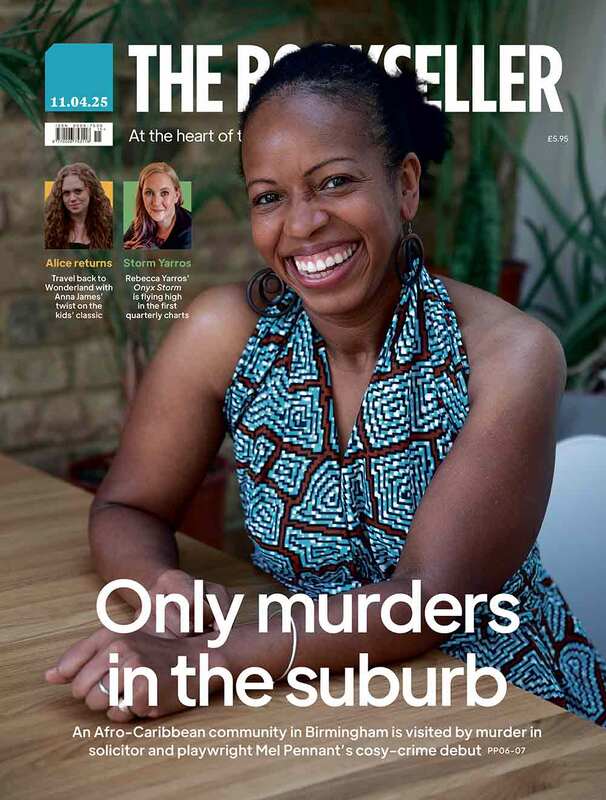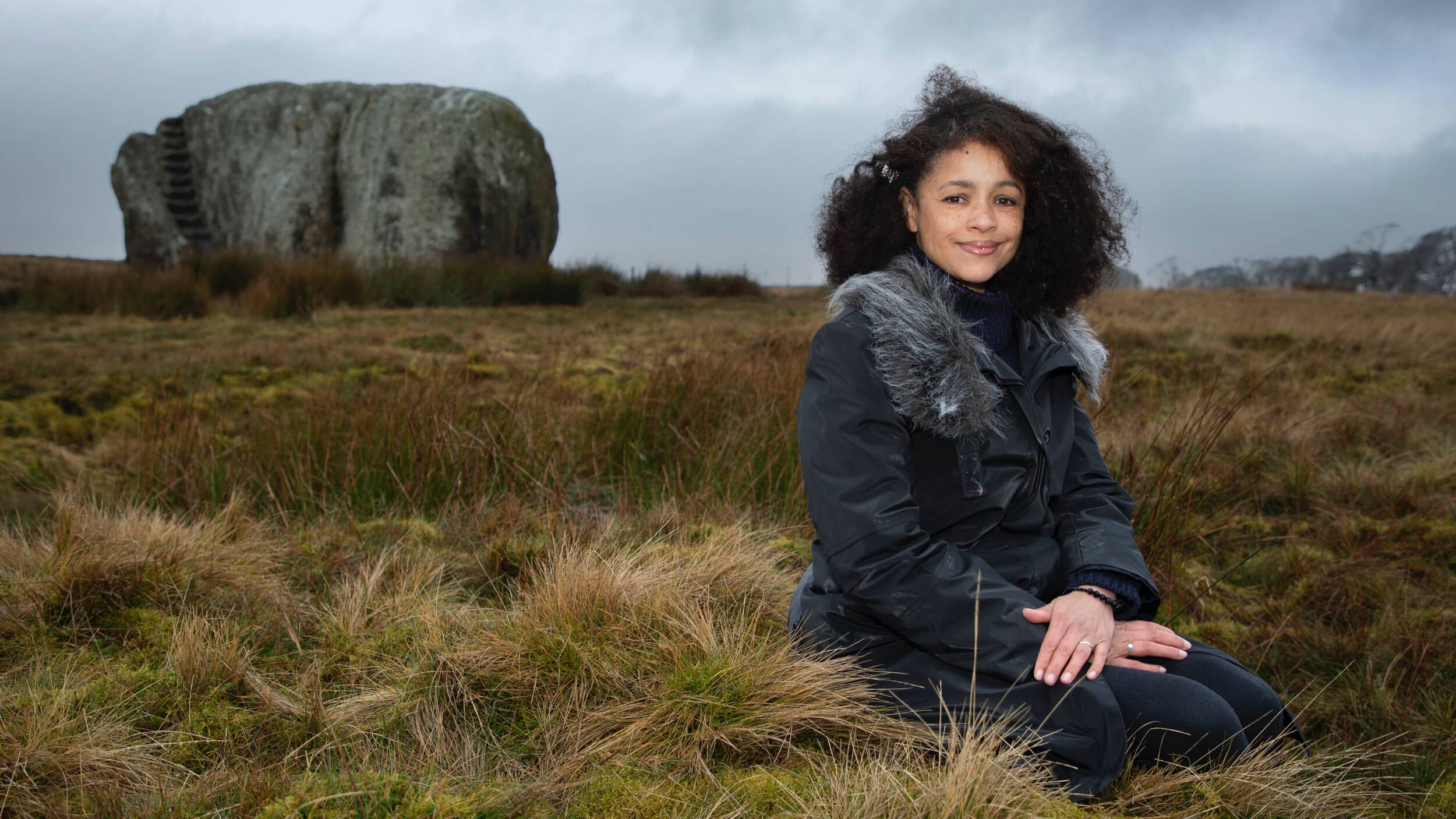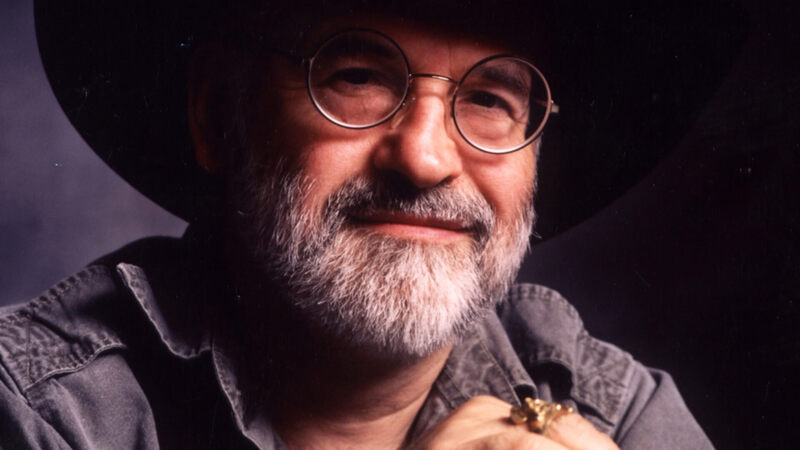You are viewing your 1 free article this month. Login to read more articles.
Clare Weze | 'It’s only latterly I’ve been making the characters whatever [I want them to be]'
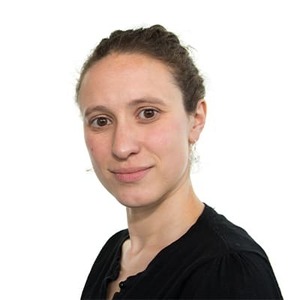 Charlotte Eyre
Charlotte EyreCharlotte Eyre is the former children’s editor of The Bookseller magazine, and current children's books previewer. She has programmed the
...moreThe electrifying first novel from Clare Weze combines the author’s love of science and young fiction
"I like the hybridity of literature and science. They belong together, and they certainly belong together in my head,” says Clare Weze, a trained scientist whose début novel, The Lightning Catcher, combines her love for science with her skills as a fiction writer.
In the novel, Alfie has just moved to a village called Folding Ford with his sister Lily, and his mother. There is nothing to do, and Alfie and his sister are the only children who aren’t white. And to top it all off, the weather is going bonkers: a frozen puddle forms even though it is a hot day in June.
My passion was always writing from that young age, but I knew you couldn’t make a living from it for ages and ages. I didn’t know how I knew that, but I did, so I knew I had to have a career and work on the side
The adventure starts when Alfie’s attention is piqued by Nathaniel Clemm, a tall, unusual man with “crazy white hair” who walks around with moths by his shoulders. When Alfie drags his new friend Sam to Clemm’s house to investigate, the boys inadvertently release a strange electrical creature into the atmosphere.
Alfie wants to understand and help the creature, Whizzy, even though Whizzy, who picks up on human emotions, doesn’t always make his life easy, while at the same time Alfie is negotiating racist villagers and family life. His father is away with work, and his mother is often too occupied with Lily, who has stopped eating due to bullying. Neither parent pays much attention to what is going on with their son.
Weze, a freelance science editor who has worked in health and environmental research, said Whizzy came from her desire to write a book with an electrical creature at its heart. “It took me a while to figure out where that creature would come from, because I wanted it to be very scientifically plausible,” she says. “I had an interest in the Sun, so I started researching the outskirts of the Sun, where Whizzy could bask in the eddies, and thought that would be a wild idea.”
Another inspiration for the story was the weather, which gives the narrative momentum in parts, as well as the setting of Clemm’s farm, which Weze describes as a “menacing place where you just don’t go”. “Mr Clemm rocked up in my head as the perfect person to live in that old house on the edge of the village,” she says. “He’s alienated, he’s misunderstood and he collects animals, but he can’t afford the licences and the insurances that he should have [to own the animals].”
Clemm’s farm is like a “magnet” to a child like Alfie, and as soon as she had Alfie in mind, “the whole story fell into place” for the author.
“I wanted to explore the idea of alienation, with him being a brown boy away from the city for the first time,” she says. “In the city he didn’t stand out, but now he does, when he wants to play detective and hide away. It’s frustrating [for him]. It clips his wings.”
There is also an exploration of friendship—and how Alfie and Sam “play with the elastic bands of friendship”—and the relationship between siblings. Weze’s children were the same age as Lily and Alfie (eight and 11 respectively) when she started writing, and the banter from brothers and sisters at that age is “absolutely hilarious”, she says.
A straddling act
The Lightning Catcher is very rooted in its Northern setting, although Clare grew up partly in Yorkshire with her grandparents and partly in London, where her mother lived. Both identities are important to her, and like Alfie she had a white mother and a Black father. “We’ve got the North/South divide and I’m straddling the two, and we’ve got Black and white, and me straddling the two again.”
She wrote her first book at the age of eight, but got into fashion and hair and art in the 1980s, and decided to become a hairdresser so she could move permanently to London. Listening to people and hearing about their lives was the perfect apprenticeship for becoming a writer, she says, although she always had an interest in science, too. At 25 she enrolled at a university to study combined sciences, encompassing both biological science and environmental science.
“[My passion] was always writing from that young age, but I knew you couldn’t make a living from it for ages and ages,” she says. “I didn’t know how I knew that, but I did, so I knew I had to have a career and work on the side.”
The Lightning Catcher has been 10 years in the making, and Weze “rushed through” a version of the manuscript in order to enter the Commonword Writing Prize in 2012. She was shortlisted, but says her career didn’t take a step upwards until some short stories she wrote won the Northern Writers Award in 2016. That led to meeting agents, and she eventually signed with Selma Begum at The Good Agency. Abi Fellows at the same agency then came on board, and they took the book to Bloomsbury together.
“That was the publisher I wanted,” says Weze. “As soon as I walked in, I knew it was the home for me. There are personal reasons, too. My dad died when I was four and he lived right around the corner from the Bloomsbury offices. Whenever I go in there, I feel like I’m taking him with me. And obviously their children’s books are wonderful.”
Bloomsbury, where her editor is Lucy Mackay-Sim, also offered Weze a two-book deal—two other publishers that were interested only wanted one—and she is now working on a second story, this time about a Nigerian-British girl who goes to live with her grandparents by the sea. The heroine has to leave London because her parents have lost their jobs and have to work crazy hours in the gig economy to build themselves back up. There is a theme, like in The Lightning Catcher, of transplantation, says Weze.
The writer says it was hard to get people interested in books where the main character was a person of colour earlier in her career. “When I first started writing stories, if I made the main character white it was much easier to be published. I did that for ages. It’s only latterly I’ve been making the characters whatever [I want them to be].”
There will always be a grandparent in her stories, she says, and she loves writing for the Middle Grade market, because: “I loved being that age and I loved being with my children when they were that age. I think that’s really living life in its fullest sense.”
For now, however, she is just excited about The Lightning Catcher’s upcoming release. “I’ve been published before in a small way, flash fiction and so on, but it’s been a long time since the book was taken on. I will be really ready for publication by the time it comes.”
Book extract
I’m not sure how you’re meant to start journals, but here goes: We moved to Folding Ford in April and now it’s July, and maybe it’s because we’re new here, but to me it’s completely obvious that this village is cracked. Today the weirdness got major, which is why I’m going to start writing it all down. If something happens to me, every one will know the facts, because of this journal.
Here’s what happened today:
Only little kids believe in giants, but that’s exactly what pounded down the hill, right at me. I was standing on the bridge at the edge of the village. It was dusk and I should have been home already.
He closed in fast, crazy white hair flying out, long string of a body, big coat swinging with every step, like a cloak. And, OK, so up close I could see he wasn’t a giant, but he was a ginormously tall man with a creepy face from a night-mare... and butter flies flapping around his shoulders.
The road was empty, the houses quiet and still.
Tried not to stare, but he was too tall, the butterflies were just too strange, and his snarly mouth and angry, darting eyes made him look ready to spring at anyone for any reason. I pretended some thing had got stuck in the front tyre of my bike, but my eyes were glued.

